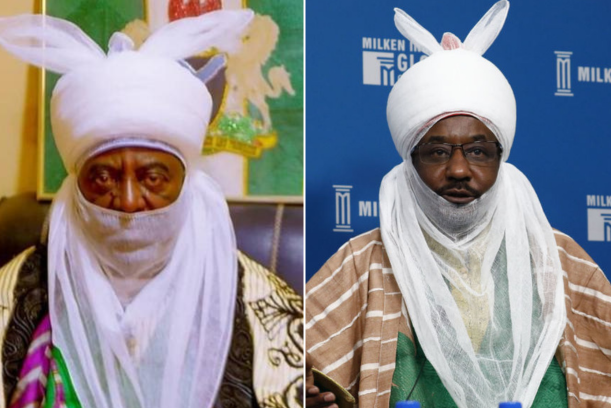What happens when courts get sucked into political conflictsand courts of coordinate jurisdiction issue contradictory orders?And can a court sit at night? Let me sidestep the deadly political conflict that has sucked in a revered traditional institution in Kano and comment, for now, about the courts that have also been sucked into it.
I am not a lawyer, but I want to share a perspective that I gained during the June 12, 1993 crisis when a similar situation happened. An FCT High Court had, on June 10, 1993 stopped NEC [as INEC was then known] from holding the June 12, 1993 election. NEC under Prof Humphrey Nwosu ignored the court order and held the election, much like Kano State Governor Abba Kabir Yusuf ignored a Federal High Court order issued on Thursday night and proceeded on Friday morning to present a letter reinstating Alhaji Sanusi Lamido Sanusi as Emir of Kano.
On June 14, 1993 Chief Judge of FCT High Court Justice Dahiru Saleh annulled the election on the grounds that a court order was flouted. Ignoring a court order is a serious matter; that was how Plateau State Governor Caleb Mutfwang nearly lost his hard-won election last year because his party, PDP ignored a court order not to hold governorship primaries until it held congresses in some local governments. Two arguments were made by Kano State Government officials for ignoring the court order, as I gathered from media reports. At first it was said that the judge sat at 10pm to issue it. Later, Governor Yusuf himself said the judge was abroad so the order was invalid.
I don’t know if indeed the judge was abroad and if so, what is the implication of that, whether judges can use the newly available infotech tools to deliver rulings from anywhere outside the courtroom. With respect to conflicting court orders and sitting at night however, I want to share the perspective we gained in 1993 form the late Galadiman Katsina Justice Mamman Nasir. He had retired as President of the Court of Appeal less than a year before the June 12 crisis broke out. I was an Assistant Editor at Citizen magazine then and my boss, Malam Mohamed Haruna, took me to see Justice Nasir at his Kaduna residence.
We asked him about what military President Ibrahim Babangida said in his broadcast to annul the election, that the courts had been dragged into the issue and were issuing conflicting orders. Indeed, after Justice Dahiru Saleh voided the June 12 election, state High Courts in Lagos, Ibadan, Benin and other cities ordered NEC to compute the results and announce the winner.
Justice Nasir expressed his anger that the FCT High Court judge, Justice Bassey Ikpeme, tried to stop NEC from holding the election. It was wrong, he said, because the Constitution required elections to be held, though candidates can go to court later if the election is not held in accordance with the law. He also frowned at several courts of coordinate jurisdiction issuing conflicting orders to NEC. No state High Court can overrule the FCT High Court, he said; the right thing to do was to quickly go to the Court of Appeal. Imagine what happened yesterday, with a state High Court ordering the police not to evict Emir Sanusi from the main palace while a Federal High Court ordered his eviction.
As for Justice Ikpeme sitting at 10pm [like the Kano judge was said to have done], Justice Nasir said courts can sit at any hour if the situation warrants it. He gave us an example; that on one Friday afternoon, a student obtained an order from an Ibadan High Court to stop the convocation of the University of Ibadan that was taking place the following morning. Tens of thousands of graduands and their family members were already in town for the convocation. UI authorities panicked, but they were advised to file an appeal.
They did so and the Court of Appeal Ibadan Division sat at midnight and discharged the injunction. So, what KNSG should have done, instead of ignoring the Federal High Court order, was to quickly file an appeal at the Kano Division of the Court of Appeal. The argument made by Governor Yusuf that the judge was abroad should have been a ground for appeal, instead of a sensational media item. I have also seen papers flying on social media, that Justice Liman’s signature was different from his signature in other documents. Why not make that a subject of appeal?
This is just to share what I learnt from Justice Mamman Nasir thirty-one years ago. Today’s governors, judges and lawyers can do what they want.









